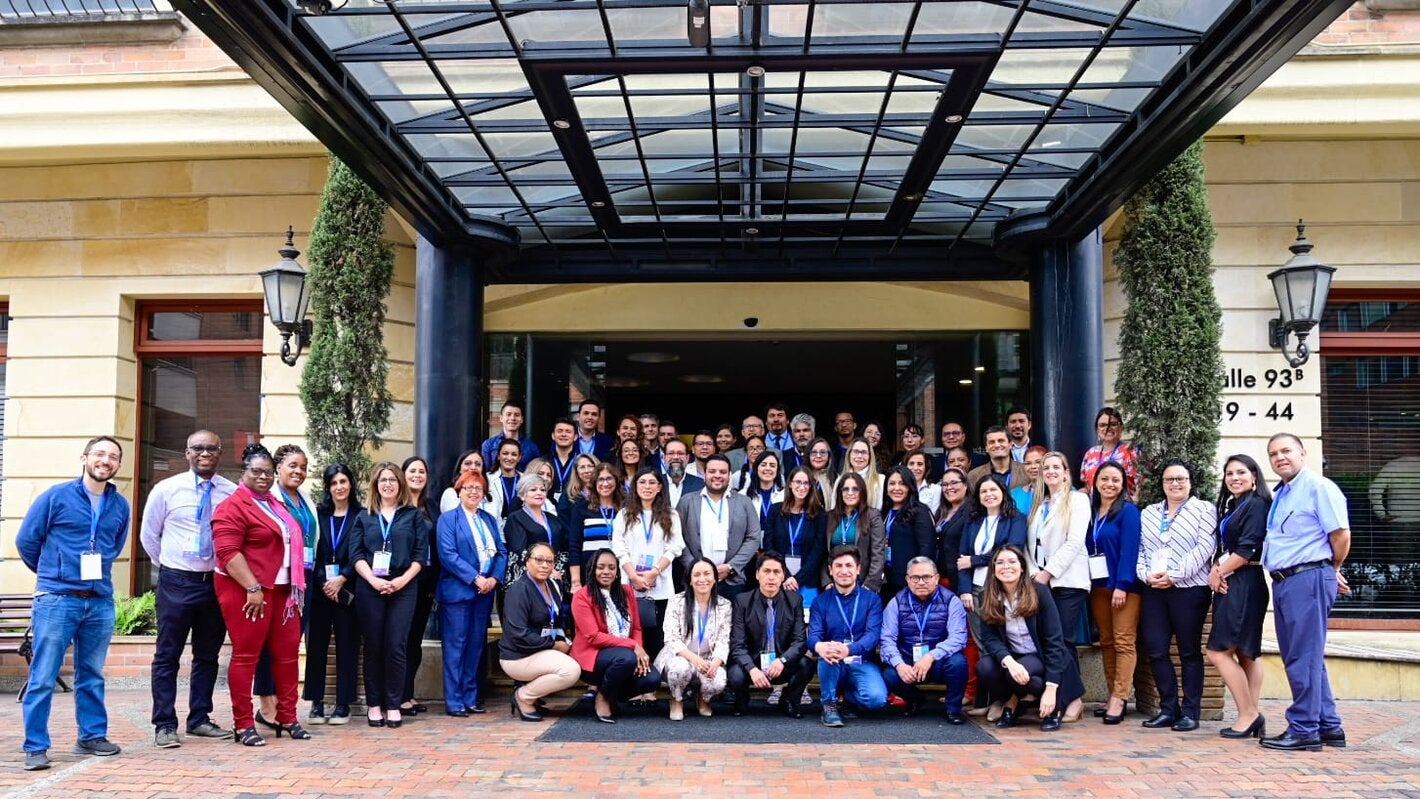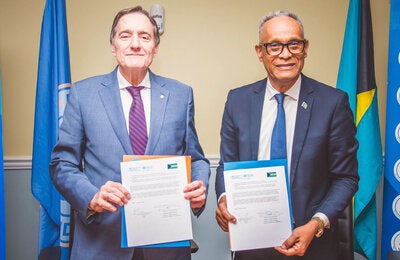
Representatives from national public health authorities in the region met in Colombia to contribute to strengthening the capacity for preparedness, and response, and ensuring the resilience of national health systems in the face of emergencies caused by respiratory pathogens.
Bogotá, Colombia, October 26, 2023 (PAHO/WHO). Public health authorities from Argentina, Bolivia, Colombia, Guatemala, Mexico, and Saint Lucia participated in the regional workshop on Preparedness and Resilience against Emerging Threats (PRET), held in Bogotá from October 10 to 12 and organized by the Health Emergencies Department of the Pan American Health Organization/World Health Organization (PAHO/WHO).
The WHO PRET initiative aims to provide comprehensive guidance to countries to strengthen health emergency preparedness, response coordination, sustainable financing, and other countries' core capacities for responding to future public health events. During the workshop in Bogotá, the first module of PRET, dedicated to threats posed by respiratory pathogens, was analyzed. The meeting also had technical participation from representatives from the WHO and the Centers for Disease Control and Prevention of the United States of America (CDC).
The COVID-19 pandemic has provided crucial lessons and presented pressing challenges that require a coordinated, integrated, and multisectoral response. "That is why it is imperative to act swiftly to address them before new diseases caused by respiratory pathogens emerge," said Gina Tambini, the PAHO/WHO representative in Colombia.
A diverse group of public health professionals from the six invited countries identified the challenges and needs for effective planning and response to pandemics caused by respiratory pathogens. "During the sessions, multisectoral and multilevel coordination was also encouraged for the development of strategies for pandemic preparedness and response, and a regional roadmap was developed to facilitate the updating and development of plans for respiratory pathogens pandemics preparedness and response," noted Andrea Villalobos, International PAHO Consultant for Health Emergencies.
The Five Components
The workshop addressed five essential components of PRET Module 1: Emergency Coordination, Collaborative Surveillance, Community Protection, Clinical Care, and Access to Medical Countermeasures.
Mauricio Cerpa, Health Emergencies Advisor at PAHO Colombia, emphasized multisectoral collaboration and continuous strengthening of preparedness to address future epidemics and pandemics caused by respiratory pathogens. He also emphasized the importance of resource sustainability for preparedness, a responsibility shared by all sectors, beyond public health. "These plans must be aligned with national policies and budget cycles to expand the union’s capacity and improve emergency response."
The interdisciplinary representation of the countries allowed the development of a roadmap in the Americas. Working with a multisectoral focus in preparedness and planning strengthens the core capacities to respond to potential public health emergencies caused by respiratory pathogens. Furthermore, each country must ensure that health is a priority on the national political agenda and that planning is included in national government coordination bodies.



